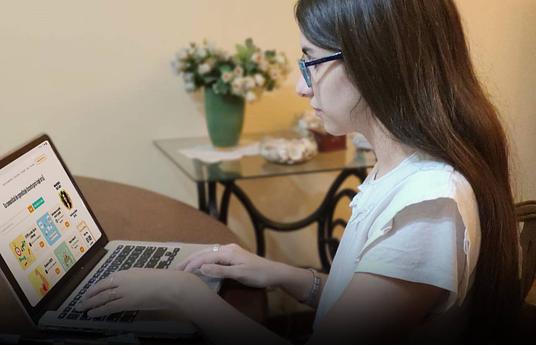There are around 400,000 Rohingya refugee children of school-going age living in Cox's Bazar, Bangladesh, and all of them have been out-of-school since March 2020 due to COVID-19 lockdown and school closures. The negative effects of school-lessness are both immediate and long-term. The languages of humanitarian assistance in the camps are Burmese and English, but the Rohingya can read neither.
The unique selling point for this remote model is that it is designed to be successful for children learning outside a formal structure, who have limited resources, and little-to-no learning support from caregivers, either because their caregivers are absent or because they are first-generation learners. It uses a tried and tested accelerated learning methodology called Teaching at the Right Level (TaRL), which forms the basis of all Street Child’s (SC) education provision and which resulted in an endorsement of SC's education provision in Liberia by the Centre for Global Development in 2019. Street Child proposes to adapt this methodology – now embedded in a remote learning framework – for use in the Cox’s Bazar / Rohingya refugee context, where there is an urgent need for a swift return to learning.
The audio-recorded classes shall be monitored by community volunteers, where the whole community will own the learning modality to ensure the sustainability of the project.
The main achievement is that the project has reached 1,680 Rohingya refugee children aged 6-11, who could not access digital technology, with almost entirely self-sufficient instruction in foundational literacy and numeracy. Children have self-directed their own learning, using a blended approach of activities including:
1. Printed and laminated learning packs containing games, songs, worksheets, activities and reading materials, to be deployed with resources that children are likely to have available in their homes and environments (e.g. sticks and stones); and
2. Audio-assisted learning via pre-recorded audio messages played through solar-powered MP3 players, which children will share.
Over the next 2 years, we hope to reach 10K+ Rohingya children in Bangladesh on Bahasan Char Island.
For further information please reach out to
Imtiaz Ridoy- Project Manager Bangladesh. imtiaz.ridoy@street-child.org
Zahid Mahmood- Global Advisory. zahid.mahmood@street-child.org
The process for scalability is simple and easy to replicate- which Street Child can help facilitate. Digital training, along with the tailored resources can be shared.



